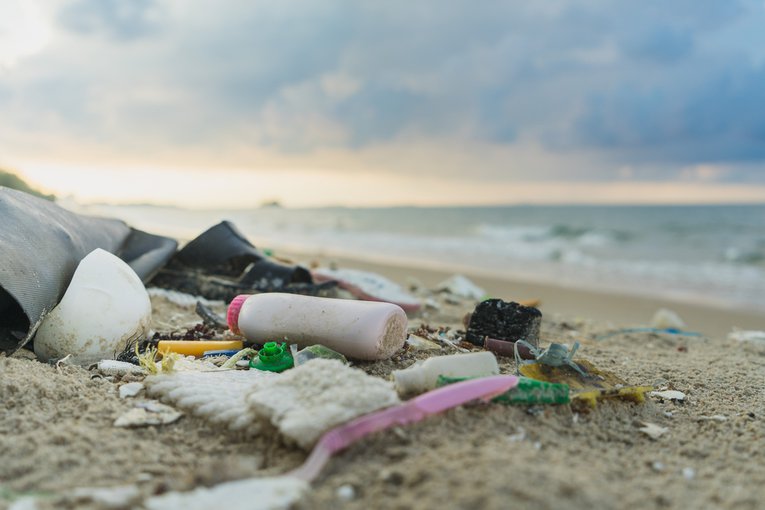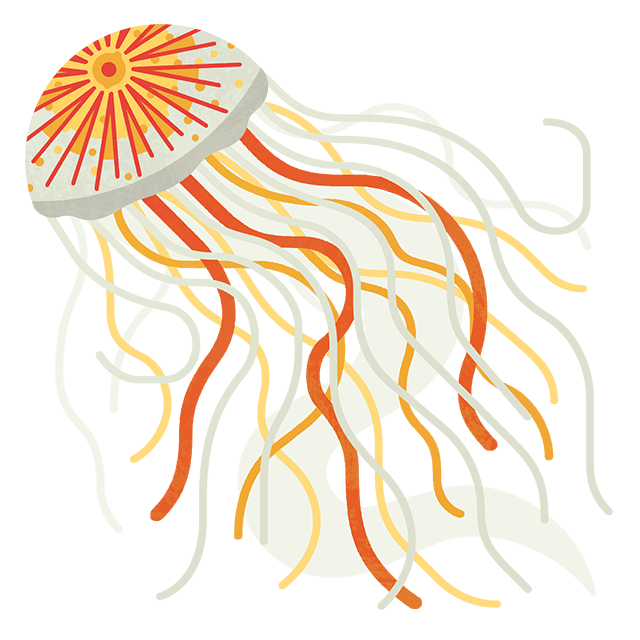
Ocean pollution and the climate crisis
3 minute read
It's a common misconception that marine pollution and the climate crisis are completely separate issues – but they're actually fundamentally linked. We must move from a single-use society to a circular economy that's free from harmful chemicals if we want to protect the planet.
What we are calling for
To accelerate climate change goals and commitments, the ocean must be part of the solution.
Here's what needs to happen:
- We must stop producing single-use plastics*, the majority of which are made from fossil fuels, and reduce our carbon footprint
- We must change our throwaway culture and embrace a circular economy where items are reused, refilled and repaired
- We must prevent plastic and harmful chemicals from entering into the ocean and damaging marine habitats and wildlife
*exemptions for medical and safety, single-use plastic should be the exception not the rule
If we take action now, a better world is possible – but politicians must lead the way.

Credit: AfriramPOE via Shutterstock
Plastic pollution and fossil fuels
Manufacturing plastic contributes to greenhouse gas emissions. As we increase the amount of plastic we produce, we use more fossil fuels and increase our carbon footprint.
Politicians know that plastic is a problem – now they must do something to stop it.

Credit: Image by Chris LeBoutillier from Unsplash
Impact on marine wildlife
Marine ecosystems are being impacted by both the plastic and climate change crises. Contaminants are making wildlife much less resilient to the impacts of climate change, which in turn is making wildlife more vulnerable to the effects of contaminants.

Credit: Mohamed Abdulraheem via Shutterstock
Chemical pollution
Industrial chemicals, such as polychlorinated biphenyls (PCBs), have been banned for years but are still contaminating our ocean.
Persistent chemicals may be stored in Arctic ice and permafrost. As the climate warms and the ice melts, they are released back into the environment posing an increased threat to marine wildlife and human health.
Marine pollution and climate change is a vicious cycle and joint solutions are needed.

PCB pollution is the reason why the UK orca population is heading for complete collapse.
Credit: Image by Bart van meele from Unsplash
Extreme weather events
Extreme weather events associated with climate change such as flooding and storms will increase the amount of plastic and chemical pollution in the sea.
Our Beachwatch volunteers already find high levels of sewage-related debris on UK beaches as a result of a failing system, this will continue to get worse unless action is taken.
Governments must invest in our ocean to protect communities and fight against climate change.

Floods in Bradford, UK
Credit: Image by Chris Gallagher from Unsplash
Circular economy
At the moment we are consuming too much and throwing away too much. Not only are we using the earth's raw materials at an unsustainable rate, but our single-use culture is contributing to the climate crisis.
In Scotland, 80% of our carbon footprint comes from the goods we consume. We need to move to a circular economy where products are reused, refilled and repaired, rather than created then thrown away.
As well as being sustainable, a circular economy must be safe and free from harmful chemicals.
Chemicals that start life in one product may end up in products that they are no longer safe in e.g. flame retardants in electronic equipment have been recycled into kitchen utensils.
We need to stop extracting raw materials and use waste as a resource – safely.

Credit: Image by Feri & Tasos from Unsplash
Investing in the ocean
The ocean is a huge natural resource that can help us address the climate crisis and build a sustainable future. It seems obvious to us that we must stop polluting it and allow it to recover.
We're working to raise awareness, carry out research and lobby the government to bring about meaningful change.
You can help us by joining our campaign for urgent ocean action.



